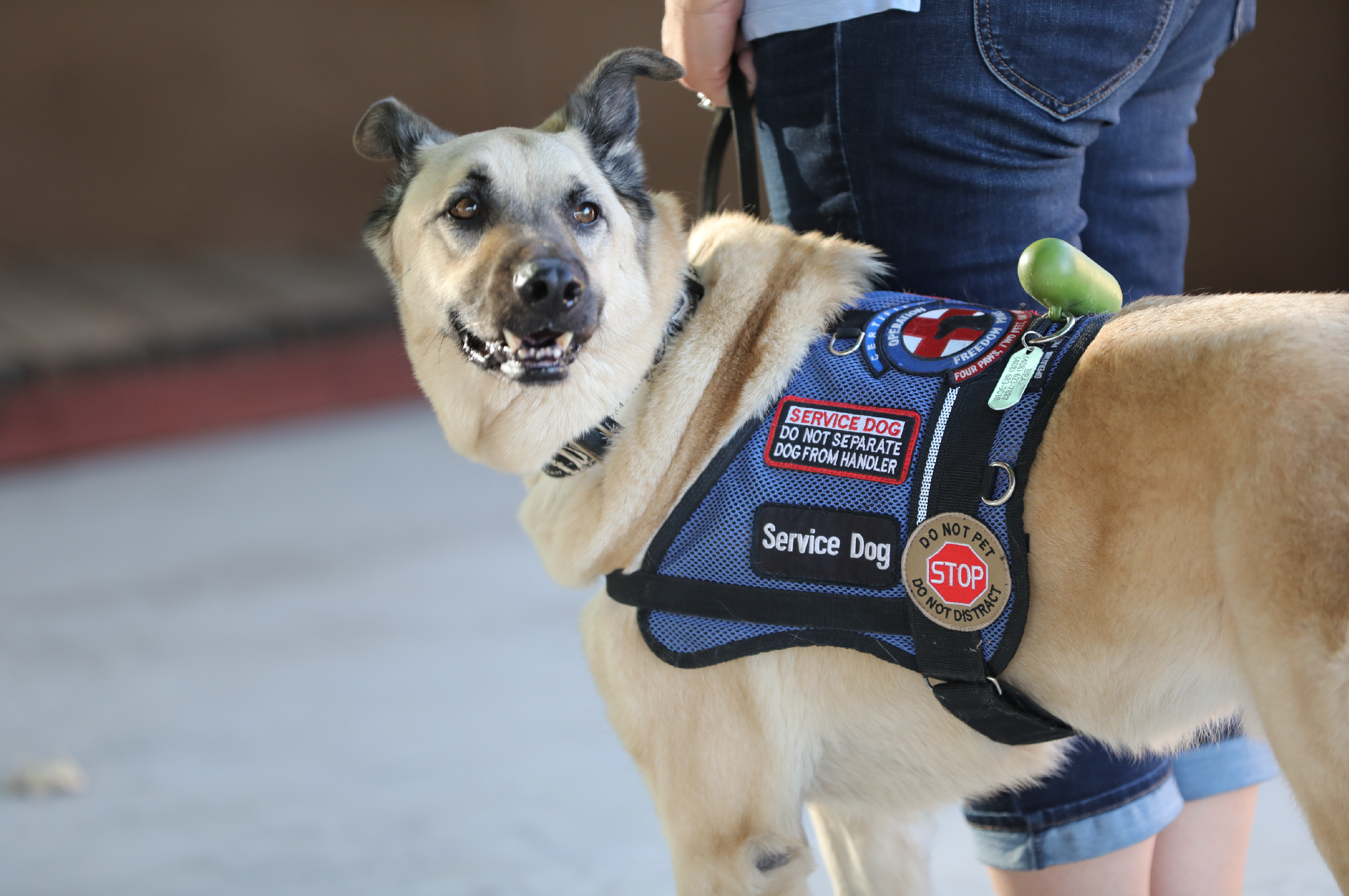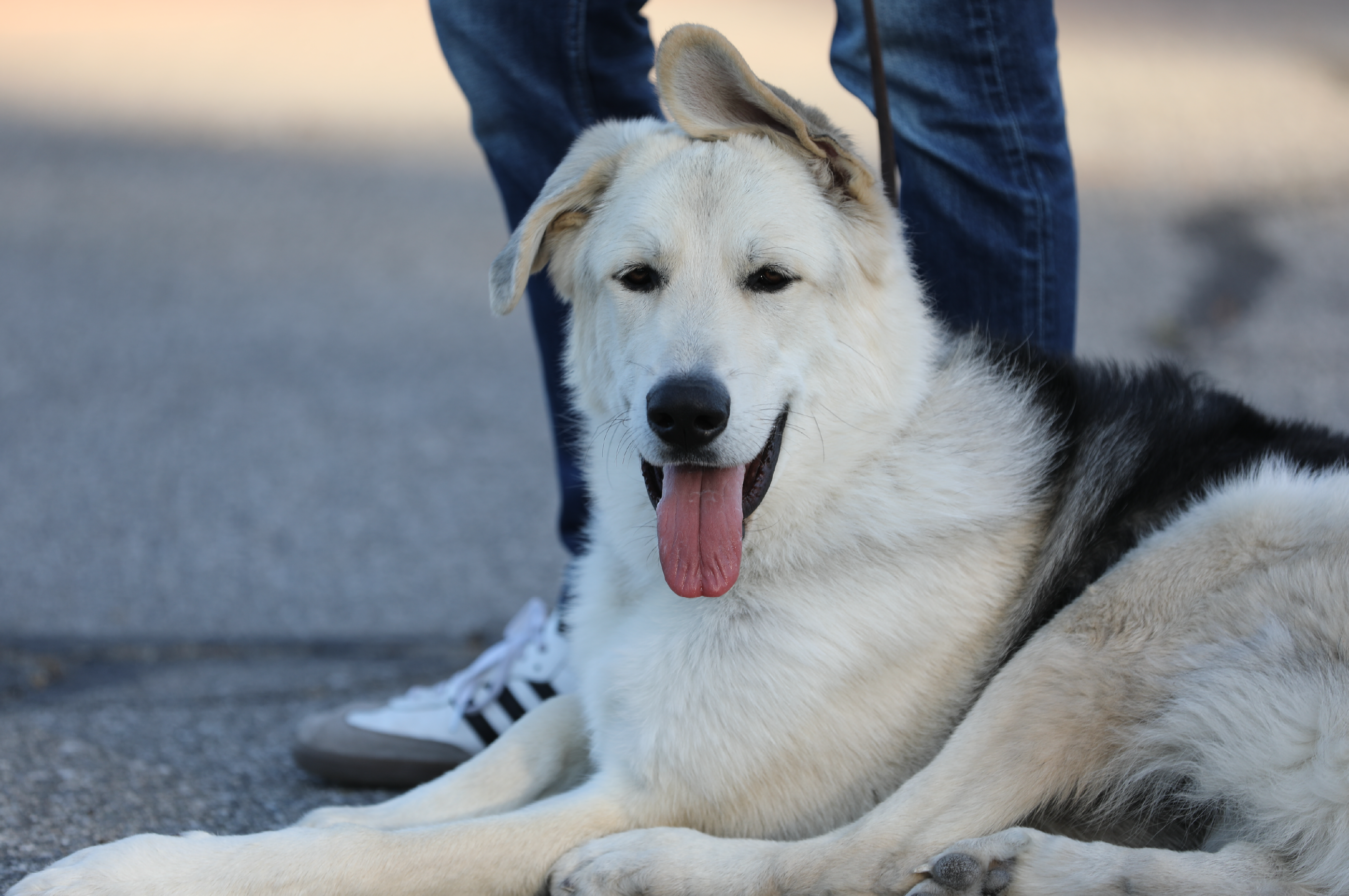About Service Dogs
Rescue Looks Different For Everyone
We’re not a rescue, but we work closely with them to ensure our clients and service dogs succeed and thrive. We partner with shelters and rescues to find dogs whose temperaments, personalities, drive, and desire to connect with humans will lead to them becoming successful service dogs. Not all dogs can be service dogs, which is why each canine completes a comprehensive 30-point behavioral evaluation to determine fit. Only then is the dog matched with a human.


What is a Service Dog?
A service dog is a guide dog, hearing dog, or other dog trained to address the medical needs of a specific person, on the recommendation of a doctor. Their job is to pay attention to their person, and to take care of them in regards to their illness or disability.
What is a Service Dog vs a Therapy Dog?
Service dogs are specially trained to perform specific tasks that are directly related to an individual person’s illness or disability. In contrast, a therapy dog provides generalized attention and comfort in support of mental health.

Service Dog Capabilities
Service Dogs are considered as belonging in one of five categories:
Hearing Dogs
(“Signal Dogs”) Alert deaf or hearing-impaired people to important sounds
Psychiatric Service Dogs
Help with mental health disabilities such as PTSD, Major Depression, Panic/Anxiety, agoraphobia, schizophrenia, and the like
Mobility Dogs
Perform tasks and provide support and balance for ambulation for those with limited mobility
Medical Alert Dogs
Trained to be sensitive to medical events or conditions, including diabetes, seizures, and cardiac conditions
Guide Dogs*
(“Seeing Eye Dogs”) Guide blind or visually impaired people around obstacles
*Note that Operation Freedom Paws doesn’t work with guide dogs, but will refer you to a partner organization that specializes in dogs to assist visually impaired people.
What kind of tasks can service dogs perform?
Blocking (creating space around an individual), Opening doors, drawers, and refrigerators Retrieving specific objects (videotapes, keys, remotes, etc.) or dropped articles, Getting help, Pulling on command, Turning lights on or off, Barking to alert of danger, doorbell, or telephone, Stopping at certain objects, Finding doors or access/egress, Finding scents, Walking slow to lead, Carrying objects.

“As a Veteran I would like to say Thank You! Without you and Operation Freedom Paws, I might still be in my wheelchair. But now with my dog Bee-Bee, I can go almost anywhere I want. Thank You! Thank You! Thank You!”
